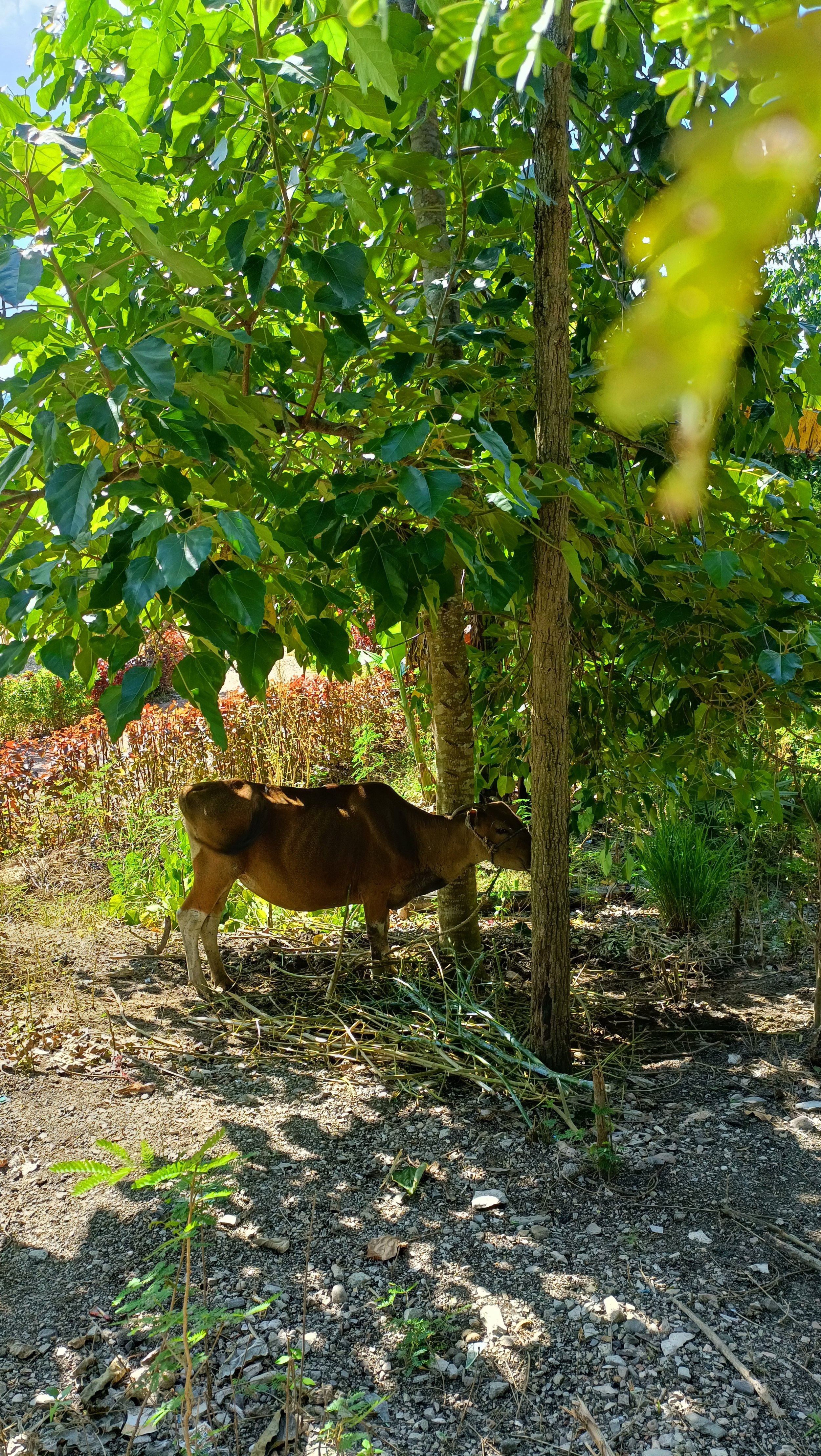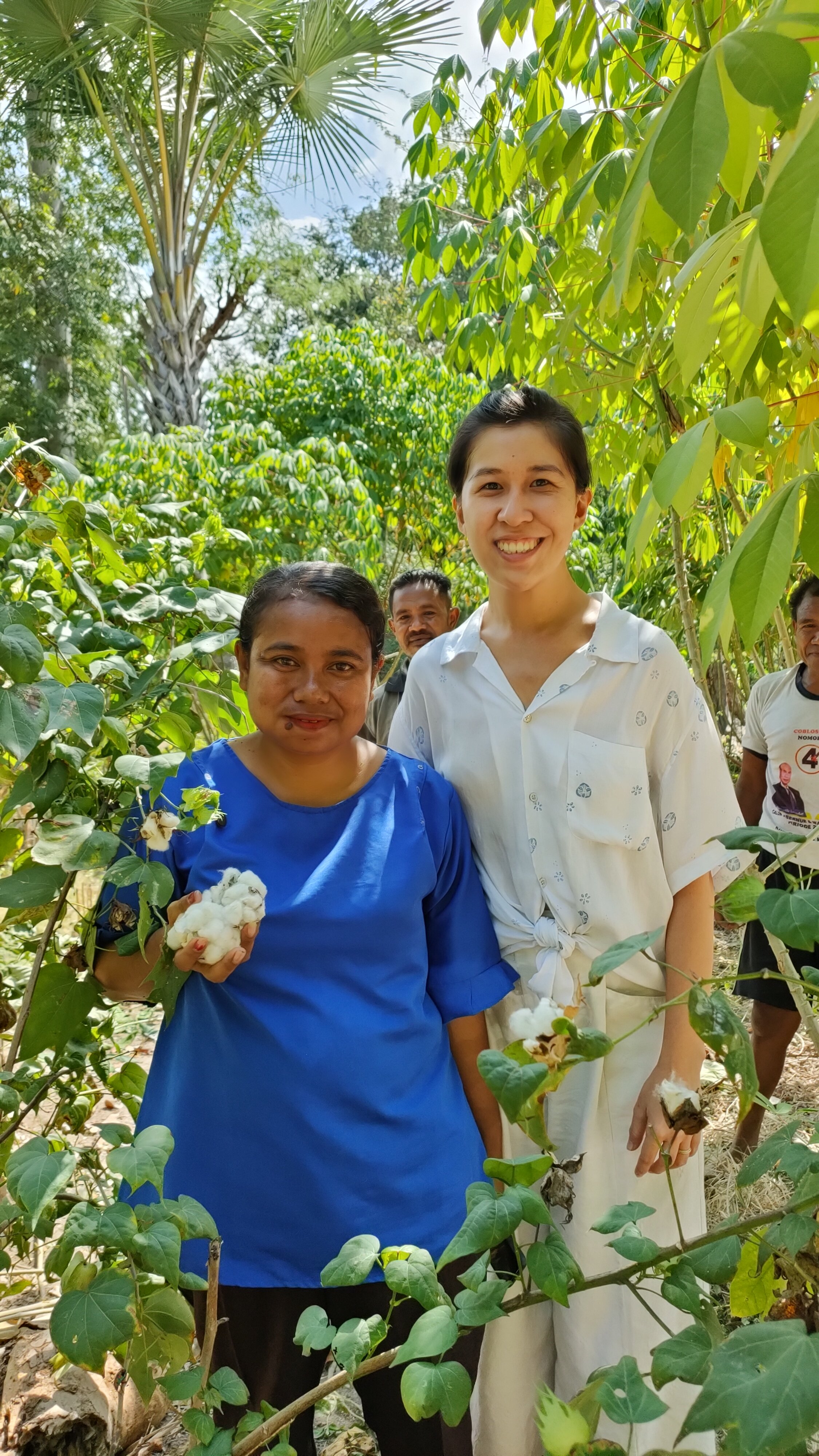Meet the Pioneers!
With your help, we’ve planted a total of 25,000 Gliricidia sticklings - a truly magical tree that will transform the degraded lanscape. This May, we finally had the chance to visit and see the change for ourselves.
Glircidia sticklings having taken root on a eroded side of a hill - stabilizing the soil and returning vital nutrients for more plants to grow here in the future.
They sound almost too good to be true: Local cattle doesn’t eat them, they grow super fast, don’t require any care and - get this - literally fertilize the ground they grow in! I’m talking about Gliricidia sepium (Indonesian: pohon gamal), a magical tree that helps us transform degraded land into a food forest for West Timor.
Degraded soil near Noemuke - not much can currently grow on the mix of sea sediment, gravel and clay. Walking here creates a crunching sound as if walking on a thin crust.
Together with our partners, Yayasan besi Pae, our social enterprise SukkhaCitta and Co2operate, we planted a total of 25,000 of these trees, re-greening +14ha of eroded, dry land. They stabilize the soil, allow better water retention and bind nitrogen - the key ingredient of most fertilizers - in their roots.
+40 men and women from the local community had helped to plant 25,000 sticklings during the rainy season. The trees will be vital in preventing future erosion as rainfall becomes harder and harder to predict.
The local community of Noemuke Village near Zoe, was involved from the very beginning. During the rainy season, 40+ men and women went to the field every day to cut sticklings and plant them in eroded and degraded areas. More than 80% of them have successfully taken root - and even those that haven’t grown leaves yet may well come to life during the next rainy season.
Planning for the Long Run
But all this is only the beginning. As the Gliricidia sticklings grow into strong trees, increase the amount of biomass in the ground and provide shade for other plants to thrive, we will introduce a whole range of crops. Creating a community agroforestry garden with food, natural dyes and even cotton.
The only real challenge that’s still to be overcome is this culprit right here:
Roaming cows and other wild animals pose a challenge to our regeneration efforts. Fortunately, they stay away from our Gliricidia stickling so they can grow undisturbed.
We had to learn that free-roaming cattle is a real challenge here in Timor. They eat pretty much anything (except glircidia trees!) and are even capable of jumping low fences. We’re now discussing with the local community how to better protect the landscape from them - for example by building living fences that are +1.5m high.
The Importance of Being on the Ground
Being on the ground, we finally had the chance to talk to the local communities face-to-face - especially the women. We got to hear first-hand just how difficult the dry season is for them - which literally is called the time of hunger (musim kelaparan) here. With entire landscapes turning yellow and brown, covering even the most basic needs is really challenging.
Denice and the Ibu Kepala Desa of Noemuke in one of the gardens where we experimented with our regenerative cotton.
Talking to the women and understanding their needs gave rise to a whole new program we will roll out over the next 3-4 years: MAMA KAPAS. We will scale our small experiments with growing cotton in Noemuke and other very dry parts of East Indonesia such as Flores. We will train local farmers to become part of our regenerative cotton projects - providing much needed additional income for women during the dry season.
Learn more about the program and how you can support it here.





